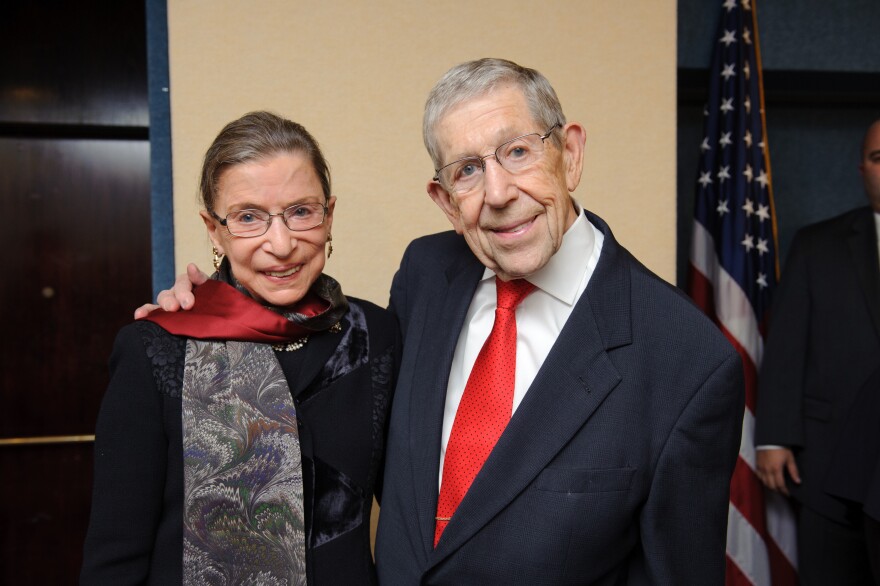Longtime Idaho attorney Allen Derr passed away in Boise Monday. He was a founding member of the Idaho Press Club and a champion of equal rights. He may be best remembered for a 1971 U.S. Supreme Court case involving Sally Reed of Boise. Her son had committed suicide a few years earlier.
Reed challenged her ex- husband Cecil Reed over who should oversee their son's estate. A county probate judge ruled in Mr. Reed's favor, citing an 1864 Idaho law that stated “males must be preferred to females, and relatives of the whole to those of the half blood,” when more than one individual claimed equal entitlement.
Allen Derr told Sadie Babits in a 2011 interview that when Sally Reed came through his office door in 1968, he was "intrigued" by her case. He also knew there was a case and it was straightforward. Derr argued that under the 14th Amendment of the U.S. Constitution, such discrimination was illegal.
He filed a notice to appeal with the U.S. Supreme Court and October 19, 1971 represented Reed in front of the justices.
By that November, the U.S. Supreme Court ruled unanimously in Derr's favor. Forty years later Derr said he remembered he wanted to "jump up and down" when he found out. He was sitting in a Boise court room at the time and a personal injury trial was underway. "I just had to go about my business," Derr recalled.
Years later after the historic Reed vs. Reed decision, Derr said he was proud of the case. But he believed more could be done for equal rights in the U.S. "I still wish we had an equal rights amendment," he told Babits. "The equal rights amendment would still be helpful in trying to get to true equality. We're not there yet."
Copyright 2013 Boise State Public Radio


